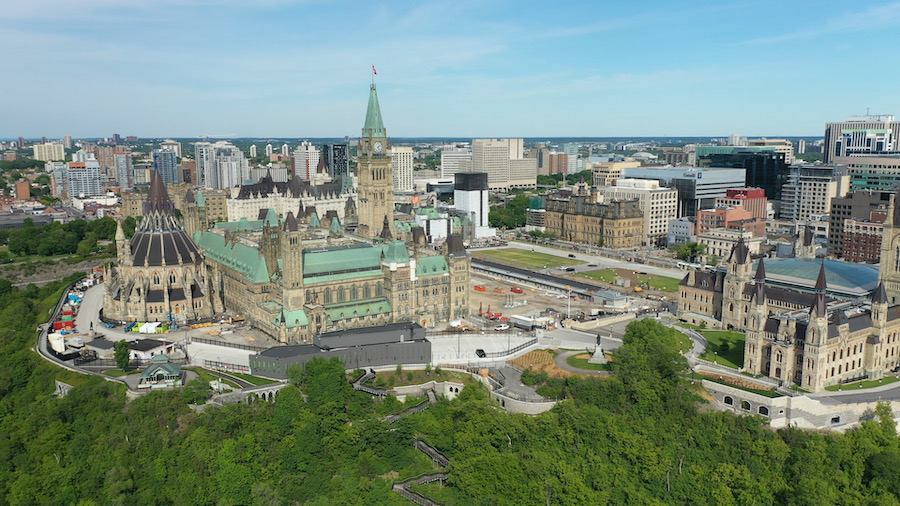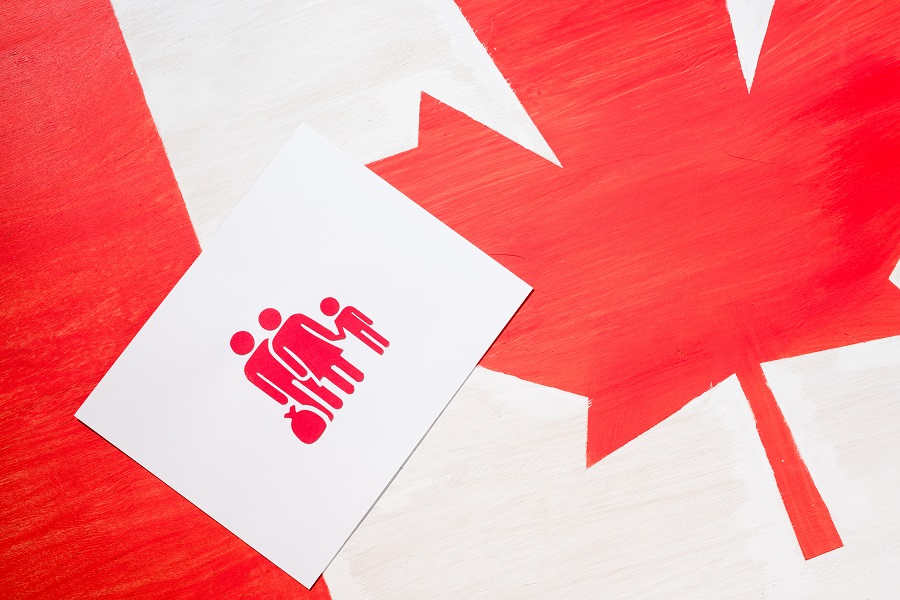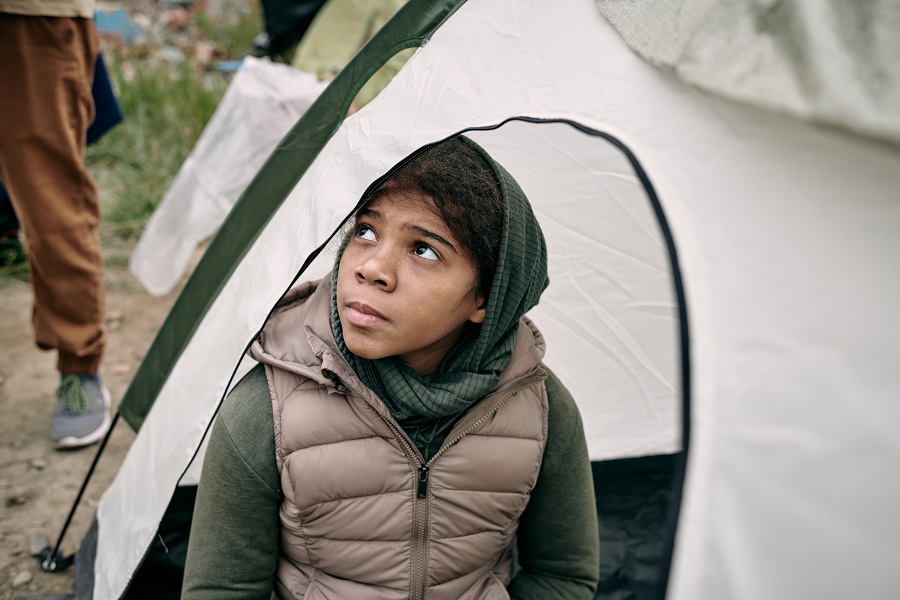Canada Extends Medical Exam Exemption
Some Immigrants May Not Need Extra Medical Exam for PR
The IRCC is now extending the medical exam exemption for immigration candidates inside Canada who are applying for Permanent Residency.
Usually, when foreign nationals are applying for Permanent Residency, they must undergo a medical exam. With this exemption, that is no longer needed if the applicant is eligible. This also applies to the applicant’s family members who meet the criteria. While this policy was set to expire on December 28, it has been extended to March 31, 2022.
Eligibility Criteria
- You have applied for PR and have not completed a new immigration medical exam
- You have completed the exam within the last five years and were found to pose no risk to public safety or health
- You have not left Canada for more than six months in the last year to live in a country that is on the government's list of countries requiring an immigration medical exam.
Since the IRCC is dealing with a huge backlog of applications, this policy is supposed to support faster processing times and help temporary residents attain their PR status. According to CIC News, nearly 1.8 million immigration applicants are still waiting to get their PR status.
The applicants that do not meet the eligibility criteria will be contacted by the IRCC to discuss the next steps.
New Immigration System Priorities Announced
The Tasks Fraser Will Be Focusing On
Prime Minister Trudeau revealed the new mandate letters to his ministers in which he outlined priorities for his ministers to pursue. One of those letters was addressed to Immigration Minister Sean Fraser, who is now tasked with implementing the agenda provided. Along with his cabinet and the IRCC, Fraser now has to focus on the following tasks:
Application Processing
Reducing the time for processing applications and addressing delays that have been caused by the COVID-19 pandemic.
Express Entry
Immigration aims to create more permanent residence pathways via Express Entry for international students and temporary foreign workers.
Family Reunification
The immigration system has to introduce electronic applications for family reunification. A program is being developed to provide temporary residence to the family abroad while their permanent residence applications are being processed.
Municipal Nominee Program
After delays caused by the pandemic, this program should be back in motion. The purpose of the program is to help promote the broader distribution of immigration across Canada.
Citizenship Application Fees
Immigration aims to make the citizenship application process free for permanent residents who have fulfilled all the pre-determined requirements.
Trusted Employer System
This system has yet to be established but is targeted towards Canadian companies that hire temporary foreign workers. The process will simplify permit renewals, establish an employer hotline, and uphold a two-week processing time.
Undocumented Workers
Immigration has been tasked with developing a program to explore more ways of creating a uniform status system for undocumented workers who contribute to the community.
Francophone Immigration
Continuing work with Quebec to support new immigrant’s French language skills who are living and working in Quebec.
Afghan Refugees
Urgent action to increase the number of eligible refugees from 20,000 to 40,000, while resettling vulnerable people from Afghanistan. A special focus has been placed on individuals who supported Canada and its allies, women, LGBTQIA2S+ people, human rights defenders, journalists and members of religious and ethnic minorities.
Canada Lands over 47 000 immigrants in November
Another Monthly Record Broken
Canada will most likely achieve its goal of accepting 401,000 immigrants this year. For the third month in a row, the country has broken their own record by accepting more than 47,000 permanent residents.
This means the country has acquired 361,371 new permanent residents in the past eleven months.
Since the IRCC is focused on transitioning many individuals within Canada to permanent resident status, it is likely that the country will achieve its overall goal regardless of the Omicron variant. Before the pandemic, a landing would occur after a foreign national physically arrived in the country. However, since COVID, a landing is now considered to be a change in an individual's legal status - a conversion to permanent residency.
Prior to the pandemic, about 30% of new permanent residents lived in Canada, while the remaining 70% came from abroad. This has reversed since IRCC made changes to achieve its Immigration Levels Plan target.
Achieving the 401,000 target has been the top priority for Immigration, Refugees and Citizenship Canada. Now when they are approaching the goal they will expand their priorities and following the new directive provided by the Prime Minister. More focus will be placed on Express Entry draws for Canadian Experience Class and transitioning international students and temporary foreign workers living in Canada to permanent residents.
Canada Sees Immigration As A Part Of COVID Recovery Plan
Ontario Will Accept 100 Entrepreneurial Immigrants
The Canadian Government's Economic and Fiscal Update was announced earlier this week, and immigrants are a big part of it.
Finance Minister Chrystia Freeland reviewed the policy measures Canada is pursuing to recover from the pandemic and noted that immigration is a cornerstone to the country’s economic growth. "Our government is committed to bringing in 411,000 immigrants in 2022, the highest number in Canadian history. To help support this effort and reduce processing time for permanent, temporary resident, and citizenship applications, we are investing $85 million in our immigration system.”
Earlier this year, Budget 2021 announced significant changes in immigration – such as refining the Temporary to Permanent Residence program, replacing of the outdated Global Case Management System, reforming Express Entry, spending more money on Temporary Foreign Worker Program, and improving employment outcomes of racialized newcomer women.
There are many benefits to revamping the current systems. For example, with a reformed Express Entry program, the immigration minister would have more authority to select candidates based on the labour market's needs. Likewise, more money going into the Temporary Foreign Worker Program would increase employer compliance inspections and prevent worker abuse.
On the provincial level, the Ontario government plans to accept 100 entrepreneurial immigrants in the next two years, with the condition that they spend $200,000 on local companies before applying for immigration. Labour Minister Monte McNaughton said the entrepreneurs will be selected through the Ontario Immigrant Nominee Program (OINP). The initiative is estimated to cost the government around $6 million.
Afghani Refugees Could Wait For Two Years To Come To Canada
Only 4 000 Made It Until Now
Back in September, the federal government promised to resettle Afghan refugees in Canada. After an especially slow start, it is projected to take up to two years for that to happen. Only about 4,000 Afghan refugees have arrived in the country to date.
Immigration Minister Sean Fraser vaguely explained this situation to CBC: 'it's not easy to move 40,000 people from the most challenging environments imaginable.
The Minister’s spokesperson, Alex Cohen, said that several factors are slowing down this process, one of which is the lack of any official diplomatic presence in Kabul, along with the lack of infrastructure in Afghanistan. Despite this, there is no exact date when any concrete action could be expected, how many refugees the government and private sponsors are expecting to bring in, or why some applications are taking so long to process.
One of those applicants is Nelofar Akbari, a defence lawyer who focuses on women's rights issues and domestic violence is currently staying in UAE with her family. Considering her career path, Akbari was targeted by the Taliban and was forced into hiding. She says she had reached out to every private sponsorship organization listed on the IRCC website but has yet to receive a response.
Kaylee Perez, the chair of Canada's Sponsorship Agreement Holders Association Council, said that the government had asked private sponsors to take 7000 of the initial 20,000 refugees set to arrive in Canada. About 3,000 of them are expected by December 2023.
On the other hand, former NATO strategic adviser and political analyst Zobair Deen, said that he is in contact with dozens of Afghans who have made it to third countries, but don't know how long they can stay there since the governments there are either pushing them out of the country or trying to have them deported.





